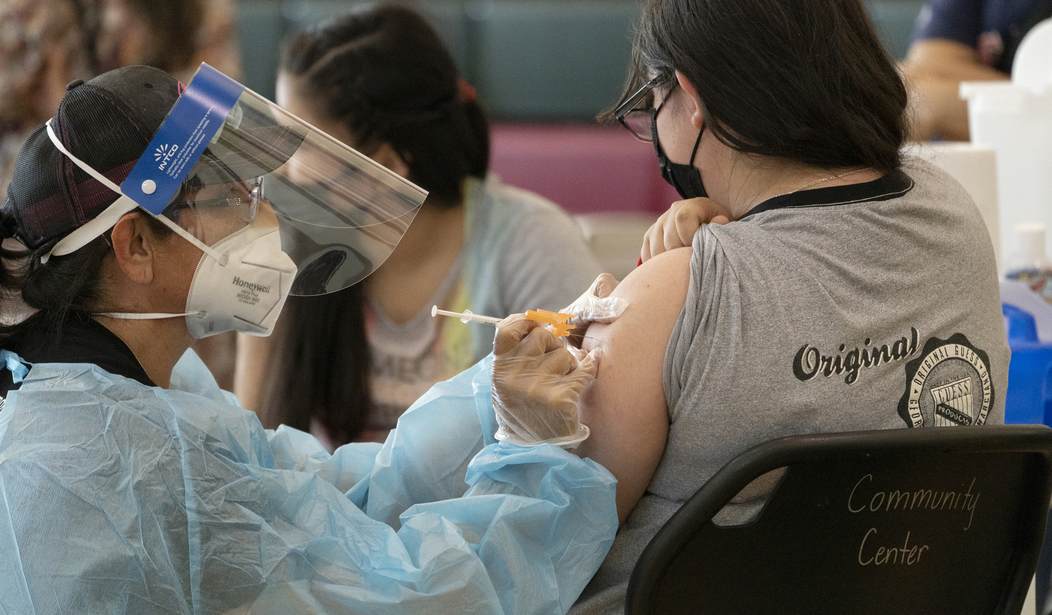Nearly every top government doctor and government regulator attended an online meeting with representatives of Pfizer to discuss whether the Food and Drug Administration should authorize a vaccine booster for those citizens already inoculated against the coronavirus.
The need for a possible booster shot has been discussed in government circles for months as real-world data on the effectiveness of the various COVID vaccines trickles in. The Moderna, Pfizer, and Johnson & Johnson vaccines are at least 90 percent effective against serious illness and death. But it’s unknown whether the antibodies created by inoculation will last a year, or two, or a lifetime.
Preliminary studies show that the body produces enough antibodies after six months in fully inoculated patients that a yearly booster shot isn’t necessary. But there just hasn’t been enough data gleaned from those with compromised immune systems or high-risk factors like age, diabetes, or heart disease to totally rule out the possibility that some kind of booster shot may be necessary.
There also isn’t enough evidence on vaccinated patients’ immunity to the Delta variant that is now causing some worry in public health circles.
Related: A Review of COVID-19 Deaths in Two California Counties Drops the Total by Nearly 25%
Pfizer is asking the FDA for emergency authorization to start manufacturing booster shots. But most scientists and public health officials think that a few more months of data will be necessary before a determination can be made about whether booster shots will be necessary.
Israel has begun giving COVID booster shots to heart transplant patients and others with compromised immune systems.
Pfizer is gathering information on antibody responses in those who receive a third dose, as well as data from Israel, and expects to submit at least some of that to the Food and Drug Administration in the coming weeks in a formal request to broaden the emergency authorization for its coronavirus vaccine.
But the final decision on booster shots, several officials said after the meeting, will also depend on real-world information gathered by the Centers for Disease Control and Prevention about breakthrough infections — those occurring in vaccinated people — that cause serious disease or hospitalization.
“At this point, the most important booster we need is to get people vaccinated,” said Dr. Carlos del Rio, an infectious disease expert at Emory University in Atlanta. But at this point, it would appear that just about everyone who wants to be vaccinated has already been jabbed. Short of a government vaccination mandate, it’s not likely that the number of fully vaccinated people will ever rise to more than 55-60 percent. So why authorize a booster shot when half the country isn’t fully vaccinated in the first place?
The prevalence and spread of the Delta variant may change that calculus. If vaccinated people start getting sick and dying from the highly contagious variant, some kind of booster shot targeting the variant may become necessary — even desirable. But it’s premature to suggest there is any great need for a booster shot as long as the number of “breakthrough” infections remains as low as it is now.










Join the conversation as a VIP Member